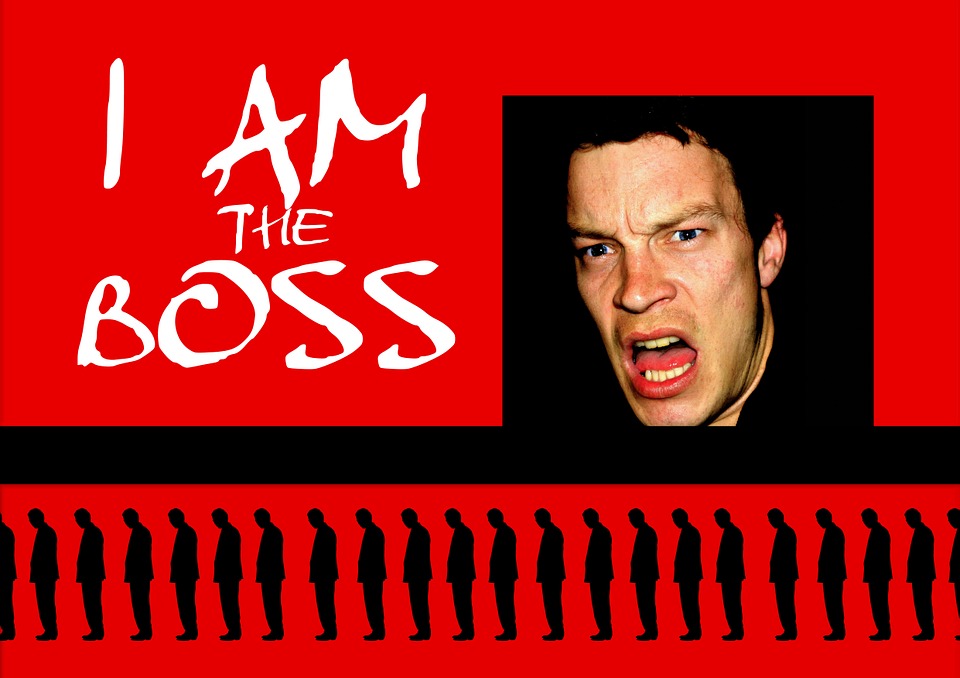Difference Between Anger Aggression and Violence
Key Difference – Anger vs Aggression vs Violence
Anger, Aggression, and Violence can have a greater impact on an individual’s life and overall in the society as well. Anger and aggression be included as the psychological states of oneself. These three situations are inter-connected based on their occurrence and the outcome they all have. Anger is a normal human emotion that motivates us to act in order to achieve what we didn’t due to varied reasons. Aggression is a result of the escalated form of anger which is associated with the physical behavior that intents to cause harm to someone or something. Violence is the physical manifestation of harsh behavior with the primary intention of harming or killing someone that is derived from the psychological state from both anger and aggression. Although these terms, anger, aggression, violence is often used interchangeably, they have differences that make them significant to be uniquely managed. The key difference between anger, aggression and violence is, anger is a psychological state of mind that occurs as a result of unachievable goals whereas, aggression is more behavioral that usually results from anger, and violence can be described as the violent physical manifestation of the ill will which often results from these two emotional conditions, anger, and aggression.
CONTENTS
1. Overview and Key Difference
2. What is Anger
3. What is Aggression
4. What is Violence
5. Similarities Between Anger Aggression and Violence
6. Side by Side Comparison – Anger vs Aggression vs Violence in Tabular Form
7. Summary
What is Anger?
Anger is a normal human emotion. However, a person feels angry as a result of emotional or psychological dissatisfaction, displeasure or irritation. This can happen due to various reasons like inability to achieve the targets, social criticisms, threat, frustration etc. Moreover, it is believed that anger can also be a secondary response to feeling sad, lonely and even frightened. Thus, describing anger as something ‘good’ or ‘bad’ depends on the final outcome it brings about. If anger is not controlled it can create destructive and aggressive behavior that can undermine a person’s quality of life, creating problems in maintaining interpersonal relationships in the society.
When a person is angry, the body releases stress hormones, such as adrenaline, noradrenaline and cortical. As a consequence, heart rate, blood pressure, body temperature and breathing rate increase. Hence, behavioral changes happen in order to manifest one’s anger to the outsiders.
As defined by Merriam Webster, anger can be described as ‘a strong feeling of displeasure and usually of antagonism’. A similar definition of anger can be found from the Cambridge Dictionary as’ a strong feeling that makes you want to hurt someone or be unpleasant because of something unfair or unkind that has happened’. Thus, it explains the negative outcome of anger if it is not controlled or transformed into something positive.

Fig 1. Uncontrolled Anger
Nevertheless, in psychology, this is usually considered as a healthy response. Anger can also be used in a positive manner by triggering and energizing people to make constructive changes in life. For example, a person feeling angry due to social criticisms and humiliations can use that emotional force to create a literary piece or become a great orator to inspire others who are suffering the same plight as he is.
What is Aggression?
Social psychologists define aggression as behavior that is intended to harm another individual who does not wish to be harmed. Merriam Webster dictionary defines aggression as ‘a forceful action or procedure (such as an unprovoked attack) especially when intended to dominate or master’ or ‘hostile, injurious, or destructive behavior or outlook especially when caused by frustration.’ Accordingly, a person behaving aggressively doesn’t consider the other person’s emotional stance or their needs. They rather consider themselves superior and tend to take the sole control over the particular situation, demanding the opponent to surrender and give in to their decisions and needs. Similarly, Cambridge Dictionary defines aggression as ‘spoken or physical behavior that is threatening or involves harm to someone or something’.
Unlike anger which is primarily an emotion, aggression takes more of a behavioral aspect. Anger can be demonstrated via aggressive behavior. Aggressive behavior range from physical abuse to verbal abuse. Aggressive behavior involves both emotional and physical harm one can inflict on another such as verbally humiliating, threatening and criticising, physical attacks, destruction of property etc.

Fig 2. Aggressive Behaviour
Aggressive behavior violates social boundaries. However, many people use anger as an excuse to behave aggressively. Aggression can also lead to self-destruction.
What is Violence?
Social psychologists use the term violence to refer to aggression that has extreme physical harm, such as injury or death, as its goal. A lot of violent acts can be identified as aggressive, but acts that are intended to cause extreme physical damage, such as murder, assault, rape, and robbery, can be categorized under violent acts. Thus, violence can be described as the extreme reactive form of aggression.
Merriam Webster defines violence as ‘the use of physical force so as to injure, abuse, damage, or destroy’ or ‘intense, turbulent, or furious and often destructive action or force’. Similarly, in Cambridge dictionary violence is termed as ‘use of extreme force or the use of action or words that are intended to hurt people’ Thus, the only intention in violence is to hurt or destroy the opponent or the cause that created dissatisfaction in the intended person.
Aggression and violence can be viewed as interlinked however, the difference between aggression and violence lies in the intensity of their eventual outcome. For example, humiliating people using varied names and criticizing them can be described as aggressive behavior whereas slapping someone and bullying others belong to violent behavior.
Moreover, all forms of violence don’t come as results of anger or aggression. For example, a predator hunting their prey is a form of violence but this doesn’t occur as a consequence of aggression. However, violence principally is a consequence of ill will or malice which uses force to create destruction and harm to others.

Fig 3. Domestic Violence
There are varied forms of violence such as emotional violence, physical violence, psychological violence, financial violence, sexual violence and domestic violence. The most destructive forms of violence are sexual assault, sexual abuse, mass murder, child abuse, terrorism etc.
What are the Similarities Between Anger Aggression and Violence?
- All can be categorized as arising from psychological or emotional instability of a person.
- All can result in destructive outcomes if not properly managed
- Uncontrollable escalation of anger can result in aggression and violence.
What is the Difference Between Anger Aggression and Violence?Definition
Anger vs Aggression vs Violence | |
| Anger | Anger is a strong feeling of displeasure and usually of antagonism. |
| Aggression | Aggression is a forceful action or procedure (such as an unprovoked attack) especially when intended to dominate or master. |
| Violence | Violence is the use of physical force so as to injure, abuse, damage, or destroy. |
| Root Cause | |
| Anger | Anger can happen as a result of frustration, injustice, and fear. |
| Aggression | Aggression results with escalated anger and other mental health issues. |
| Violence | Violence can result from anger and other malicious intentions. |
| Intensity | |
| Anger | Anger can be used in a positive way if properly managed. |
| Aggression | Aggression results in destructive behavior. |
| Violence | Violence results in heightened violent and destructive outcomes. |
Summary – Anger vs Aggression vs Violence
Anger and aggression are psychological situations where one feels frustration or dissatisfaction. Anger can lead to aggression which is more behavioral than anger which is primarily a human emotion. Aggressive behavior only intends to harm the opponent. Violence is another manifestation of aggressive behavior that results from anger. Unlike aggression, violent has more destructive outcomes. This can be described as the difference between anger, aggression, and violence.
Download the PDF Version of Anger vs Aggression vs Violence
You can download PDF version of this article and use it for offline purposes as per citation note. Please download PDF version here Difference Between Anger Agression and Violence
Reference:
1.“Learn the difference between anger, aggression, and violence.” Learn the difference between anger, aggression, and violence, HUMAN KINETICS. Available here
2.Stangor, Dr. Charles. “Principles of Social Psychology – 1st International Edition.” Defining Aggression | Principles of Social Psychology – 1st International Edition, 26 Sept. 2014. Available here
Image Courtesy:
1.’Anger Controlls Him’By Jessica Flavin from London area, England – Anger Controlls Him, (CC BY 2.0) via Commons Wikimedia
2.’Trouble Cry Man Silhouette Aggression’ (Public Domain) via Max Pixel
3.’Domestic violence; a husband holding his wife by the hair ab Wellcome V0045165′ By Wellcomeimages Gallery (CC BY 4.0,) via Commons Wikimedia
ncG1vNJzZmivp6x7pbXFn5yrnZ6YsqOx07CcnqZemLyue8OinZ%2Bdopq7pLGMm5ytr5Wau26tzaCcq2WRo7FuwtJmmKCfoprAtLXOp2SappRiw7R51aKmpZ2emLJw